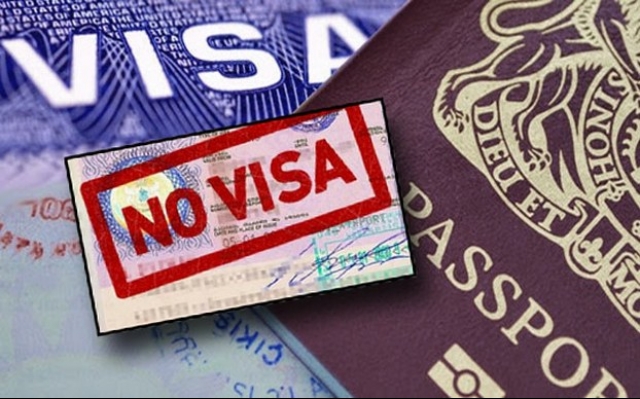Calls for 6 more countries to access visa exemptions
 |
Tourists from these six countries often stay for a long time in Vietnam and spend an average of $1,200 each, he said, and they present almost no security risk and therefore can access visa exemptions from 170 other countries.
He also suggested that the travel period under a visa exemption be extended to 30 days from the current 15. “I propose the government apply 30-day visa exemptions from the third quarter of this year, to attract more tourists over the remainder of the year,” he told the workshop.
In order to provide more favorable conditions to international tourist, he went on, the government should also remove the stipulation that foreigners accessing a visa exemption must remain outside of Vietnam for at least 30 days before returning. Moreover, the visa exemption program should last from one year to five years and should be announced at least six months before coming into reality.
To enhance the quality of e-visas, meanwhile, the website needs to be improved and its domain name, of “evisa.xuatnhapcanh.gov.vn”, should be changed to “evisa.gov.vn”, to enable tourists to easily find it.
Finally, Mr. Chinh said, visa exemptions should be available to passengers with tickets from Australia to Europe who are transiting in Vietnam for between 48 and 72 hours.
Mr. Vu The Binh, Deputy Chairman of the Vietnam Tourism Association, told the workshop that policies for a tourism development fund should be issued, with clarifications on how much each enterprise should contribute.
Though Vietnam rose eight places in the World Economic Forum’s 2017 competitiveness index, to 67th out of 136 economies, said Mr. Tran Trong Kien, Co-Chairman of the Tourism Working Group at the VPSF, the visa situation and policies for investing in tourism infrastructure have not improved.
Tourism promotion is one of the most important tasks in developing Vietnam’s tourism sector, he went on, but continues to receive little attention, and the $2 million the country spends each year on the task is low compared to regional countries.
All opinions gathered at the Forum are expected to be submitted to the Prime Minister by the end of July.
What the stars mean:
★ Poor ★ ★ Promising ★★★ Good ★★★★ Very good ★★★★★ Exceptional
Latest News
More News
- Manila becomes a new check-in destination for Vietnamese youth (December 11, 2025 | 18:07)
- Vietjet launches mega year-end ticket promotion (December 10, 2025 | 11:33)
- Dalat leads Vietnam’s 2025 search trends (December 09, 2025 | 13:44)
- Vietnam welcomes record wave of international visitors (December 09, 2025 | 13:43)
- Vietjet launches daily Manila flights to celebrate year-end festive peak season (December 05, 2025 | 13:47)
- The destinations powering Vietnam’s festive season travel demand (December 04, 2025 | 18:33)
- Vietnam named among the world’s most exciting winter destinations (December 04, 2025 | 15:10)
- Phu Tho emerges as northern Vietnam’s new tourism hub (December 01, 2025 | 17:00)
- Vietjet completes Airbus A320/A321 updates ahead of deadline (December 01, 2025 | 09:49)
- Vietjet resumes Con Dao flights from early December (November 28, 2025 | 15:24)
















 Mobile Version
Mobile Version